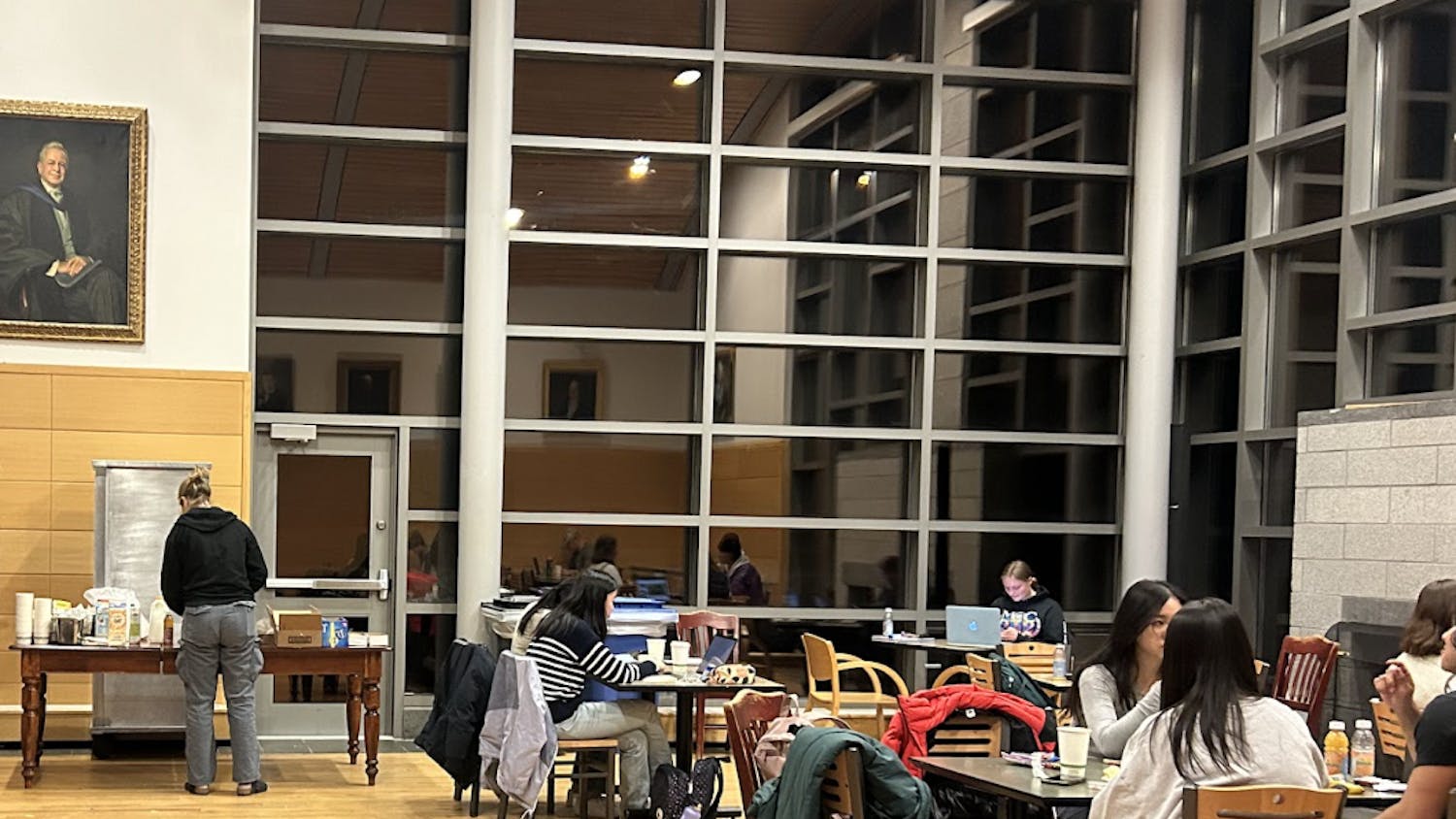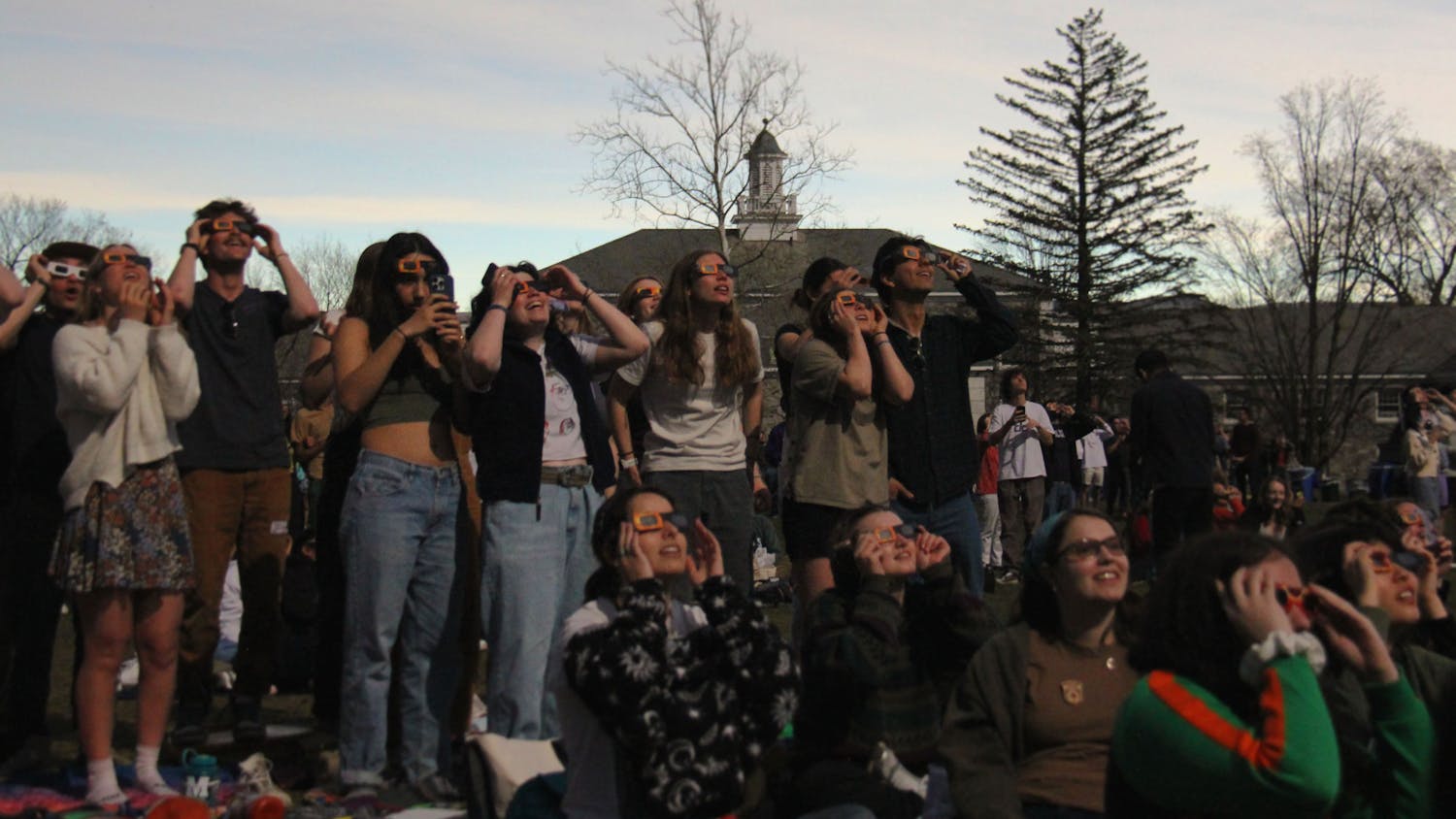Following the recent earthquake, tsunami and resulting nuclear crisis in Japan, Middlebury students and faculty at the College’s partner university, the International Christian University (ICU) in Tokyo have decided to evacuate the island. The College community, consisting of many with close ties to Japan, has begun fundraising and aid efforts to help those in need.
“Whenever there is a tragedy, or anything that is upsetting, the College community tends to have a three-pronged approach: fundraising and humanitarian efforts, some sort of remembrance and an educational gathering of some kind,” said Chaplain Laurie Jordan. “The first is often launched before the faculty can even blink an eye, because students are so quick to respond.”
The two student organizations leading the fundraising are Believe 4 Kids and the Japanese Club. Also providing support are the Religious Life Council and the Distinguished Men of Color. Together, these groups are mounting the 1,000 Paper Cranes campaign.
“The campaign hopes to raise awareness of the current issue, raise funds for the tsunami relief effort and increase appreciation and connection to Japanese culture,” said Believe 4 Kids leader Mariam Boxwala ’13.
Members have been accepting donations and helping students fold origami cranes in the dining halls.
“The symbolism of the cranes harkens back to the Japanese belief that if one makes one thousand paper cranes and wishes on them, his wish will come true,” said Boxwala.
The campaign also hopes to host a fundraiser event in mid-April. More information regarding 1,000 Paper Cranes can be found on the group’s blog at go/1000cranes.
“These student relief efforts show that Middlebury is a special place,” said Lecturer in Japanese Kyoko Davis, whose family lives in Miyagi, one of the most damaged regions in Japan. “It’s inspiring to see the determination to help in so many capacities on campus.”
The College also led a remembrance service at Mead Chapel on March 17. The event “served its purpose,” Jordan said. “We had a steady stream of people come to show their respects and share in this hard time.”
On Monday night, Davis and Professor of Japanese Studies Stephen Snyder, Kawashima Professor of Japanese Studies Neil Waters and Benjamin F. Wissler Professor of Physics Rich Wolfson gathered to hold a panel discussion of the events. The discussion addressed the earthquake and the resulting tsunami and nuclear threat, focusing on cultural, historical and technological implications.

While the Middlebury community strives to learn about the disaster and aid in relief efforts, some students and faculty members from areas devastated by the series of disasters have been directly affected by the recent events.
“Middlebury students from Japan are really struggling right now,” said Davis. “Midterms are already so stressful, but being so far from home and hearing about all of this is really hard … But knowing that so many people care definitely helps.”
Four Middlebury students are currently enrolled in the C.V. Starr-Middlebuy School in Japan at the International Christian University (ICU) program in Tokyo.
Jerry Romero Jr. ’12 described the initial moments of the earthquake.
“I remember the doors and cabinets shaking violently throughout the dorm,” he said, “and the earthquake even had enough strength to open windows.”
After the earthquake and tsunami, the administration promptly brought Romero and his fellow Middlebury classmates back to the U.S. As of now, the future of the Middlebury-ICU program is not clear.
“We are still in a wait-and-see mode when it comes to the spring term,” said Dean of International Programs and Knox Professor of International Studies & Politics Jeff Cason. “We are monitoring the situation in Japan, and intend to make a decision one way or another by March 29.”
Nicole Chance, Coordinator of International Programs, emphasized that student safety is the College’s top concern.
“Right now we are unsure of the long-term effects on our study abroad program in Japan,” she said. “While we are hopeful that the Tokyo area and ICU will be operational, we will continue to monitor the situation and, until we have been assured that it is both safe and productive for our students to return, we will not put our students into an uncertain environment.”
“I sincerely hope that I can return to ICU for the spring semester,” said Lia Schnackenberg ’12, another student in the ICU program. “However, my personal desires aren’t the top concern in a time like this. If I had the opportunity to return to Tokyo, it would indicate that the situation in Japan had improved, and that's what I, along with so many others, am hoping for above all other things.”
According to Jordan, students and faculty should not lose the momentum of initial relief responses and continue to aid Japan’s recovery in the weeks and months to come.
“You can plan a wedding years in advance, but you have to plan a funeral right away,” she said. “With crises there is a similar dynamic: we have to respond quickly. We can’t immediately do everything perfectly, so it is important that Middlebury and its students not forget that this happened, and that we continue to learn and help.”
Davis agrees, calling for whatever aid people are able to give.
“Being so far away from Japan, it might be easy for people to forget that this happened,” she said. “But the reconstruction process is going to take time, and it’s important that we don’t let this pass by without helping. Any way that people can help will be valuable.”
In addition to donating to the 1,000 Paper Cranes Campaign, students can find a list of trusted organizations on the ground in Japan. This list can be found at go/chaplain.
“I would encourage everyone to give donations, if possible,” said Schnackenberg. “A little goes a long way, and Japan really needs our help right now.”
College community fundraises for Japan
Comments



